Document Author
Year Published
- 2015 (23) Apply 2015 filter
- 2008 (7) Apply 2008 filter
- 2016 (6) Apply 2016 filter
- 2005 (5) Apply 2005 filter
- 2007 (5) Apply 2007 filter
- 2010 (4) Apply 2010 filter
- 2013 (4) Apply 2013 filter
- 2017 (4) Apply 2017 filter
- 2006 (2) Apply 2006 filter
- 2009 (1) Apply 2009 filter
- 2011 (1) Apply 2011 filter
- 2014; 2017 (1) Apply 2014; 2017 filter
- 2018 (1) Apply 2018 filter
- 2019 (1) Apply 2019 filter
Topic
- 100% Access to Justice (25) Apply 100% Access to Justice filter
- Presentations (24) Apply Presentations filter
- Self-Help Centers (16) Apply Self-Help Centers filter
- Webinars (15) Apply Webinars filter
- Research (13) Apply Research filter
- Ethics Education (12) Apply Ethics Education filter
- Libraries (12) Apply Libraries filter
- Trial Court Self-Help (11) Apply Trial Court Self-Help filter
- Justice Tech Entrepreneurs (10) Apply Justice Tech Entrepreneurs filter
- Forms (8) Apply Forms filter
- Conferences & Summits (7) Apply Conferences & Summits filter
- Judicial Ethics (7) Apply Judicial Ethics filter
- Reports, Evaluations, Best Practices, Surveys (7) Apply Reports, Evaluations, Best Practices, Surveys filter
- Strategic Planning (7) Apply Strategic Planning filter
- Working Groups (7) Apply Working Groups filter
- Courts (6) Apply Courts filter
- Plain Language & LEP (6) Apply Plain Language & LEP filter
- Judges (5) Apply Judges filter
- Legal Aid (5) Apply Legal Aid filter
- Plain Language (5) Apply Plain Language filter
- Allied Professionals (4) Apply Allied Professionals filter
- Best Practices (4) Apply Best Practices filter
- Best Practices for Self-Help Centers (4) Apply Best Practices for Self-Help Centers filter
- Clerk, Self-Help Center Staff, and Librarian Ethics (4) Apply Clerk, Self-Help Center Staff, and Librarian Ethics filter
- Forms (4) Apply Forms filter
- Linking a Self-Help Center to Other Services (4) Apply Linking a Self-Help Center to Other Services filter
- Tools for Evaluating Self-Help Programs and Services (4) Apply Tools for Evaluating Self-Help Programs and Services filter
- Trainer of the Trainer Materials / Curricula (4) Apply Trainer of the Trainer Materials / Curricula filter
- Unbundling (4) Apply Unbundling filter
- ATJ Commissions (3) Apply ATJ Commissions filter
- Automated Forms & E-Filing (3) Apply Automated Forms & E-Filing filter
- Funding (3) Apply Funding filter
- Funding Strategies (3) Apply Funding Strategies filter
- Impact of Self-Represented Litigant Innovations on Cost and Efficiency (3) Apply Impact of Self-Represented Litigant Innovations on Cost and Efficiency filter
- Integration with Institutional Process (3) Apply Integration with Institutional Process filter
- Law Libraries (3) Apply Law Libraries filter
- Private Bar (3) Apply Private Bar filter
- Public Libraries (3) Apply Public Libraries filter
- Reports (3) Apply Reports filter
- Technology (3) Apply Technology filter
- Attorney Ethics (2) Apply Attorney Ethics filter
- LEP and Access (2) Apply LEP and Access filter
- Regulatory Concerns (2) Apply Regulatory Concerns filter
- Scaling in Court Systems (2) Apply Scaling in Court Systems filter
- Academic Libraries (1) Apply Academic Libraries filter
- Appellate Self-Help (1) Apply Appellate Self-Help filter
- Articles & SRLN Briefs (1) Apply Articles & SRLN Briefs filter
- Courses & Trainings (1) Apply Courses & Trainings filter
- Simplification (1) Apply Simplification filter
- Starting a Self-Help Center (1) Apply Starting a Self-Help Center filter
State
- Alaska (2) Apply Alaska filter
- California (2) Apply California filter
- Illinois (2) Apply Illinois filter
- Maryland (2) Apply Maryland filter
- Minnesota (2) Apply Minnesota filter
- Texas (2) Apply Texas filter
- District of Columbia (1) Apply District of Columbia filter
- Florida (1) Apply Florida filter
- Idaho (1) Apply Idaho filter
- Indiana (1) Apply Indiana filter
- Montana (1) Apply Montana filter
- Nevada (1) Apply Nevada filter
- North Carolina (1) Apply North Carolina filter
- South Carolina (1) Apply South Carolina filter
- Utah (1) Apply Utah filter
Tags
Post date
Search results
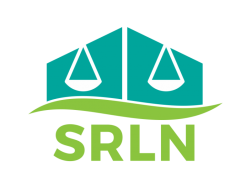
SRLN Brief: Academic Law Library- Public Library Partnerships (SRLN 2015)
As noted in the American Association of Law Libraries Access to Justice White Paper, legal research instruction has always been core to academic librarianship. One role for academic law librarians in promoting access to justice is to provide training to p ...
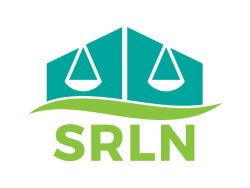
Conference: SRLN Conference on Public Libraries and Access to Justice (Austin 2010)
The following are materials from a Conference held in January 2010 on Public Libraries and Access to Justice by the Self‐Represented Litigation Network of the National Center for State Courts. The full set of conference materials can also be accessed on W ...
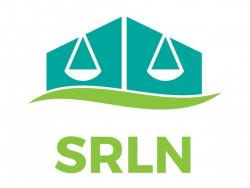
SRLN Brief: The Case for Public Library Services for the Self-Represented: An Opportunity to Enhance Access to Justice for All (SRLN 2008)
This advocacy piece is designed as part of a series by the SRLN to make the case to a variety of stakeholders of the value of innovation in support of access for the self-represented. Law Libraries United States Case for Law Libraries.doc Self-Represented ...
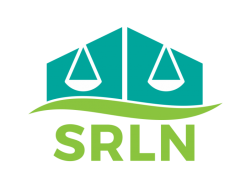
SRLN Brief: Law Library Ethics
The following are resources on law library ethics: American Association of Law Libraries (AALL) Ethical Principles & AALL UPL Toolkit The American Association of Law Libraries (AALL) Ethical Principles make a statement about law librarians’ duty to av ...
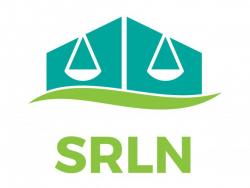
SRLN Brief: Procedural Fairness / Procedural Justice (SRLN 2015)
Research has shown that when defendants and litigants perceive the court process to be fair, they are more likely to comply with court orders and follow the law in the future—regardless of whether they “win” or “lose” their case. This is called procedural ...
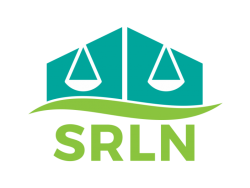
Report: Effectiveness of Courtroom Communications in Hearings Involving Two Self-Represented Litigants (SRLN 2008)
These materials are the product of research conducted by the Network and its partners into the effectiveness of, and best practices in, communication between judges and the self-represented. They include a 30-minute DVD in which a judge summarizes the res ...
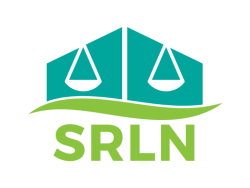
SRLN Brief: Envisioning 100% Access (SRLN 2015)
National Initiative: JUSTICE FOR ALL PROJECT Over the last fifteen years, leaders from the courts, legal aid programs, private bar associations, and allied professionals have actively pursued innovations to reimagine and redesign the civil legal system so ...
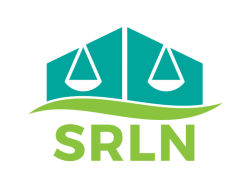
Research: Judge- SRL Communications Research (SRLN 2007)
Through funding from the State Justice Institute, the California Administrative Office of the Courts, and the Maryland Judiciary, the Self-Represented Litigation Network conducted two research projects this year (2006-2007). These projects are: 1) Courtro ...
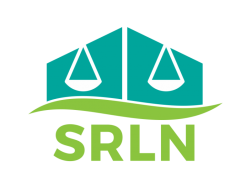
SRLN Brief: Incubators- Changing the Practice of Law (SRLN 2015)
In recent years, many law schools have started post-graduate training and support “incubator” programs designed to help recent graduates or new attorneys start their own firms. Incubators meet two important access to justice initiatives: they facilitate a ...
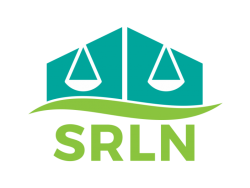
SRLN Brief: Examples of Legal Aid On-Line Intake and Triage Projects (SRLN 2016)
Over the years, legal aid programs developed complex intake protocols and decision trees to help manage their crushing caseload. Initially, these screening tools were simply paper documents that intake staff could use. Then, as telephone hotlines develope ...